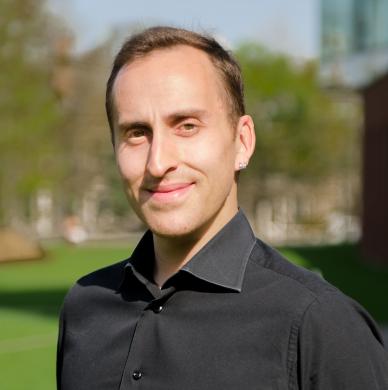
Ricercatore
Istituto di Biorobotica
Leonardo Cappello
Bio
Leonardo Cappello si è laureato in Ingegneria Meccanica (BS) nel 2009 e in Ingegneria Biomedica (MS) nel 2011 presso l'Università degli Studi di Firenze. Nel 2016 ha conseguito il dottorato di ricerca in "Robotics, Cognition and Interaction Technologies" presso l'Istituto Italiano di Tecnologia, sotto la supervisione del Prof. Lorenzo Masia. Durante il dottorato è stato visiting student presso la Nanyang Technological University, Robotics Research Centre, Singapore (2014 - 2015).
È stato ricercatore post-doc presso l'Università di Harvard e il Wyss Institute for Biologically Inspired Engineering, nel gruppo guidato dal Prof. Conor Walsh, dove ha lavorato su robot indossabili soft per il ripristino sensorimotorio degli arti superiori (2016 - 2017). È stato poi ricercatore post-doc presso l'Istituto di BioRobotica - Scuola Superiore Sant'Anna – lavorando a protesi robotiche e tecniche protesiche avanzate per gli arti superiori, lavorando a stretto contatto con il Prof. Christian Cipriani e il Prof. Marco Controzzi (2017-2022).
Nel 2022 è poi divenuto Ricercatore (Assistant Professor) presso l'Istituto di BioRobotica - Scuola Superiore Sant'Anna (Italia), dove ha fondato il Textile Robotics Lab, nello stimolante contesto dell'Artificial Hands Area, dove lavora alla progettazione di robot indossabili basati su tessuti per il ripristino e l'incremento sensomotorio umano. I suoi interessi di ricerca includono l'aptica, la robotica assistiva e riabilitativa, la protesica, le ortesi e le neuroscienze motorie.
Recentemente gli è stato conferito lo Starting Grant dal Consiglio Europeo della Ricerca (ERC StG) per il progetto MUsculoSkeletal Expansion (MUSE). Ha inoltre ottenuto il Best Student Paper Award alla IEEE International Conference on Rehabilitation Robotics (ICORR) del 2015, tenutasi a Singapore.
